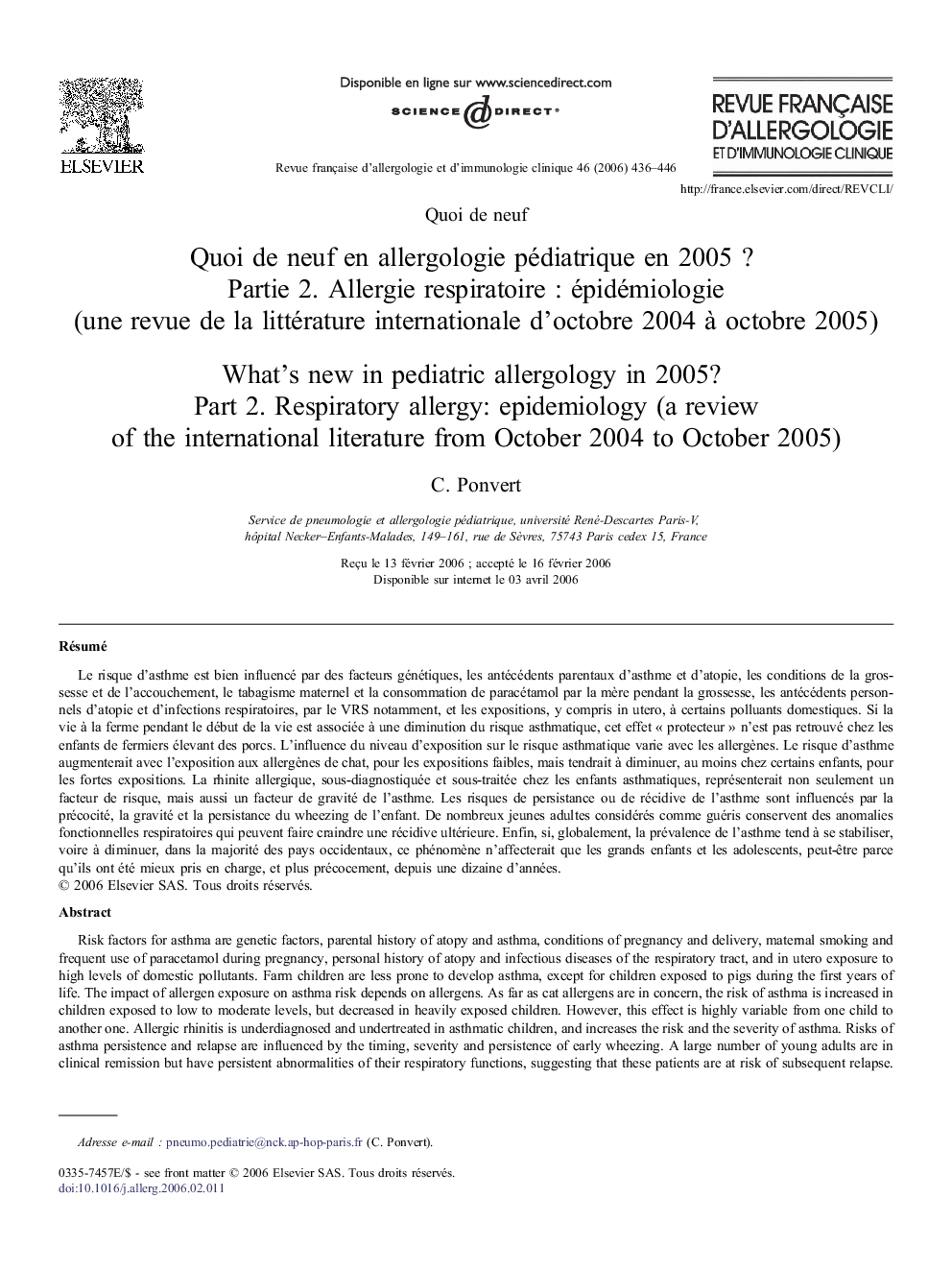| Article ID | Journal | Published Year | Pages | File Type |
|---|---|---|---|---|
| 2770551 | Revue Française d'Allergologie et d'Immunologie Clinique | 2006 | 11 Pages |
Abstract
Risk factors for asthma are genetic factors, parental history of atopy and asthma, conditions of pregnancy and delivery, maternal smoking and frequent use of paracetamol during pregnancy, personal history of atopy and infectious diseases of the respiratory tract, and in utero exposure to high levels of domestic pollutants. Farm children are less prone to develop asthma, except for children exposed to pigs during the first years of life. The impact of allergen exposure on asthma risk depends on allergens. As far as cat allergens are in concern, the risk of asthma is increased in children exposed to low to moderate levels, but decreased in heavily exposed children. However, this effect is highly variable from one child to another one. Allergic rhinitis is underdiagnosed and undertreated in asthmatic children, and increases the risk and the severity of asthma. Risks of asthma persistence and relapse are influenced by the timing, severity and persistence of early wheezing. A large number of young adults are in clinical remission but have persistent abnormalities of their respiratory functions, suggesting that these patients are at risk of subsequent relapse. Finally, several studies suggest the end of the asthma "epidemics" in most European countries. However, other studies show that, although declining in adolescents, the incidence of asthma is still increasing in young children.
Keywords
Related Topics
Health Sciences
Medicine and Dentistry
Anesthesiology and Pain Medicine
Authors
C. Ponvert,
